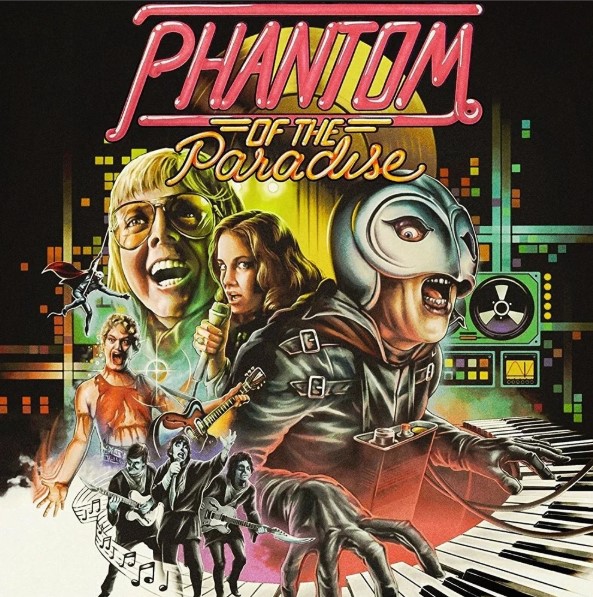
The Phantom of the Paradise has been a guilty pleasure of mine since I was little. I was too young with it was originally release in theatres. So my memories are limited to shitty VHS screening and thank the gods, a blue ray but I never did have the full theatre experience. That is until now. Our local community cinema, The Revue pulled out all the stops to make this a very memorable experience.
The Phantom was in attendance as we as a performance by BEEF…yes BEEF!.
Brian De Palma’s The Phantom of the Paradise is a dazzling and eccentric collision of horror, comedy, and rock opera that has only grown in cult stature since its release. Loosely reimagining The Phantom of the Opera through the lens of Faustian bargains and the excesses of the music industry, the film follows Winslow Leach (William Finley), a gifted composer whose music is stolen by the Machiavellian record producer Swan (Paul Williams). After being disfigured in a freak accident, Winslow reemerges as the Phantom, haunting Swan’s lavish rock palace, the Paradise, and battling for the voice and love of singer Phoenix (Jessica Harper).
What makes the film so memorable is its willingness to be both outrageous and sincere. De Palma unleashes his full arsenal of split screens, rapid cuts, and heightened visuals, creating a pastiche that feels both satirical and operatic. Paul Williams not only delivers a menacingly charismatic performance as Swan but also provides the film’s unforgettable music, ranging from glam-rock parodies to heartfelt ballads. Beneath the camp and spectacle lies a sharp critique of the corrupting machinery of fame, where art is commodified and artists destroyed.
Though dismissed on release, The Phantom of the Paradise now stands as one of the great rock musicals of the 1970s, as well as a striking testament to De Palma’s inventiveness. Its blend of dark comedy, tragedy, and vibrant musical energy ensures its place as a cult classic—one that rewards both cinephiles and fans of eccentric, subversive cinema.
